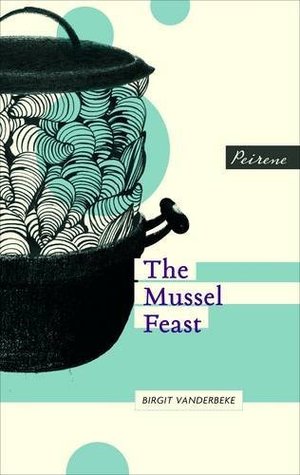 There’s a reason why oppressive societies have images of their leader on every wall and statues in every town square. For the tyrant to maintain power, he must be everywhere, or at least give that appearance.
There’s a reason why oppressive societies have images of their leader on every wall and statues in every town square. For the tyrant to maintain power, he must be everywhere, or at least give that appearance.
In this gripping portrait of a dysfunctional family, it’s only when the father returns home late from work one night that his absolute rule over his wife and children begins to slip. Freed of the need to perform and appease, the three of them begin to make startling admissions: the children both fantasise about jumping out of the window, while the mother secretly admires Medea. All three of them are hoping that something has happened to the father and he won’t come home. His hold over them loosens as they learn to imagine life without him.
If this sounds like an allegory of the process of political change, that’s because it is. Birgit Vanderbeke says she “wrote this book in August 1989, just before the Berlin Wall came down. I wanted to understand how revolutions start. It seemed logical to use the figure of a tyrannical father and turn the story into a German family saga.”
The political metaphor is well constructed, and never feels heavy-handed. You could read the whole novella as nothing more than a story of a moment of change within a family, and still enjoy it immensely. The father is mesmerising in his well-meaning cruelty, his subtle menace. This combination of compelling story and political subtext has made The Mussel Feast a set text for German schoolchildren, but it’s still relatively unknown in the UK. That could soon change, as an English translation has just been published for the first time.
The novel is narrated by the daughter, and at the start she tries very hard to convince us that everything is normal. The father’s first appearances are positive: he sings and flirts with his wife, he is a “brilliant and highly influential speaker”, he possesses a “natural charm” and an “endearing manner with the public”, and is sure of a promotion. His family prepares a feast of mussels, his favourite meal, to celebrate his return.
Yet there are hints, even from the start, that something is not quite right. The narrator is trying too hard. The truth, we sense, is darker. The children and their mother are nervous, twitchy, and it’s made worse when the mussels, all four kilograms of them, start opening in the pot, making a horrific rattling noise. Gradually, details start to emerge of a family that is far from happy.
The “abusive father” has been covered so extensively in fiction that it’s become almost a cliché. It’s tough to say anything new about such a character, but Vanderbeke manages it through the pitch-perfect selection of details. This is a character who abuses his family not so much through his outright violence as through such apparently harmless things as stamp collections stuffed into the wall unit, outings to the countryside and Verdi operas every Sunday morning. The torture comes with the rigid imposition of his idea of what a “proper family” should do, the relentless scrutiny and the constant fear of punishment. Like all tyrants, he punishes his children not out of anger, but out of disappointment at their failure to measure up to his standards of perfection. Every word feels fresh, every detail authentic.
Although it’s the father’s absence that drives the plot, his character is still so strong that it overshadows the others. We get glimpses of the mother’s sadness as she plays Schubert songs at the piano, or the children’s fears and shared fantasies, but it is the father we get to know best; the others exist only through his eyes and under the shadow of his judgements. This is both a strength and a weakness, as it adds to the picture of an abusive father controlling his family, while making it harder to understand the motivations of the other three as autonomous individuals. They’re not even given names.
The book is written in simple, straightforward prose, appropriate to its teenage narrator. The power of the book comes not from beautiful prose, but from the accumulation of simple details, the stuff of everyday family life, but a life under the obsessive control of one man and his rigid, often ridiculous ideas of what a “proper family” should do, whether it’s cutting their hair short or investing in an expensive encyclopaedia or playing skat together every evening. And then, amid the domination and control, small moments of rebellion bubble up unexpectedly:
Shortly after seven Mum said, I do hope nothing’s happened; and out of pure spite I retorted, what if it has … Mum looked at me, not as horrified as I’d expected, but with her head to one side, and then she smiled and said, well, we’ll see, and she didn’t sound as if she’d find it surprising or even terrible if he didn’t come home.
At just 105 pages, The Mussel Feast is a quick, easy read, but manages to paint a complete portrait of a terrifying family, while also delving into deeper political and psychological territory. It’s become a modern classic in Germany, and this translation deserves to find a wide readership in the English-speaking world. I’d recommend this as an excellent choice for Caroline and Lizzy’s German Literature Month in November.




There are 10 comments
Great review.
When I read this years ago I just saw it as the story of a dysfunctional family but what you write makes a lot of sense. It can be read either way, I’d say. I think it’s an excellent book but by far not my favourite of her or rather, it’s very fifferent from the rest. She may very well be the author I’ve read the most of. I hope this is the beginning of a wave of translation of her work.
Thanks for mentioning GLM, Andrew.
Yes, it can definitely be read in different ways, and is very compelling either way. I’d like to read more, so I hope someone does more translations. What’s your favourite?
No worries about mentioning GLM! I am swamped at the moment and hardly have time to keep the blog going, so won’t be able to participate this year, but am looking forward to reading some of the posts. Always a fun event!
I liked “Ich sehe was, was du nicht siehst” and “Alberta empfängt einen Liebhaber”. But there were others. She’s written a lot. I’ve got a book with essays and might pick that up for next month.
Thanks, Caroline. It’s amazing to think, sometimes, of the whole world of books that is closed off to me because of language barriers. All I can read is one of her books, and there are so many more out there. And of course many good writers never get translated at all.
I’m yet to read this and had no idea about it being a metaphor, that sounds brilliant, and I’m not sure if other reviews have mentioned it so it’s good you included it. Interesting that even the narrator feels the need to make everything sound good to the reader, can’t say I’ve come across that concept before.
Yes – well, that’s how I read it, although as Caroline says, it can also just be read as a story about a dysfunctional family, and it would still be worth reading.
I thought the way the narrator tried to make everything sound good worked really well – it helped me to see through to the true horror of the family experience, without feeling as if I was being hit over the head with it. It also struck me as being true to the way victims of abuse sometimes try to minimise it or provide excuses for their abuser.
Beautiful review, Andrew! I am seeing ‘The Mussel Feast’ making waves on the blogosphere and now after reading your review I want to read the book. I liked your comparison of the father figure with a political tyrant and how the family’s rebellion is a metaphor for larger political events. I have seen fathers like the one in this book – it is hard for their families. I will try to read this book soon. Thanks a lot for this wonderful review.
Good to see it on Vishy’s TBR for Geman Literature month, an excellent read, like one long stream of consciousness. I was fascinated with the physical layout, the way the prose filled the page and allowed no breathing space or pause, just like the oppressor. A classic indeed.
Encore un post incontestablement attrayant